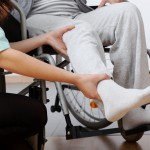
In his debut blog, Justin Chapman reviews a longitudinal study which finds that exercising can buffer against depression after stressful life events.
Justin is live blogging for The Mental Elf at #EquallyWellAu23 this week, alongside Elf Coordinator Laura Hemming who is on live tweeting duties.
[read the full story...]







